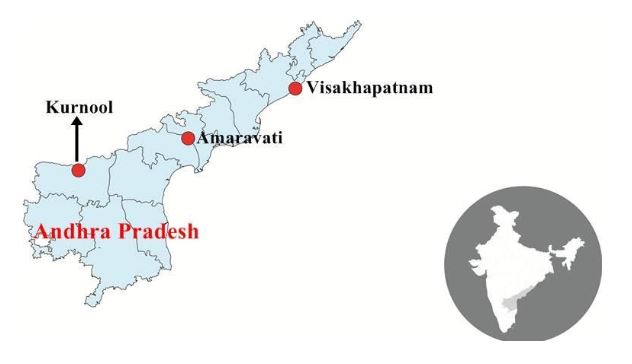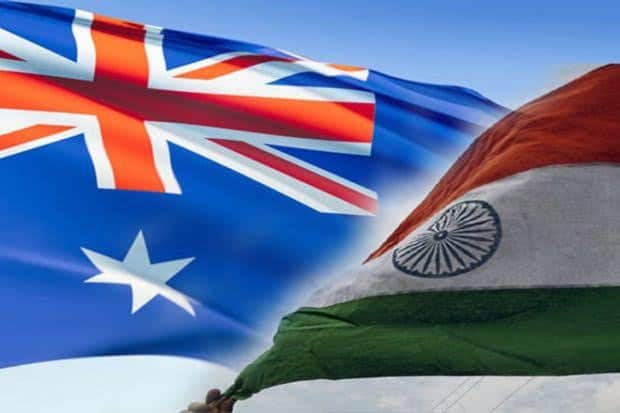The Big Picture- RSTV, UPSC Articles
Multiple State Capitals & Governance
Archives
TOPIC: General Studies 2
- Functions and responsibilities of the Union and the States, issues and challenges pertaining to the federal structure, devolution of powers and finances up to local levels and challenges therein.
- Government policies and interventions for development in various sectors and issues arising out of their design and implementation.
In News: The Andhra Pradesh Legislative Assembly passed the AP Decentralisation and Inclusive Development of All Regions Bill, 2020 that intended to give shape to state government’s plan of having three capitals —
- Executive capital in Visakhapatnam
- Legislative in Amaravati
- Judicial in Kurnool
The amendments to the Bill proposed by the Opposition Telugu Desam Party were rejected by the House.
The cabinet chaired by Reddy approved
- The proposal on three capital cities aimed at “decentralised and inclusive development of all regions of the state”
- Repealing the Capital Region Development Authority Act and establishes the Amaravati Metropolitan Development Authority.
The ruling YSR Congress Party has also reportedly decided to scrap the state’s Upper House as it is miffed with the Legislative Council stalling bills.
Issue of multiple state capitals

Multiple State Capitals & Governance – The Big Picture – RSTV IAS UPSCMultiple State Capitals & Governance – The Big Picture – RSTV IAS UPSC
Rationale for three capitals
- It is against building one mega capital while neglecting other parts of the state. They do not want to develop one area utilising all our available financial resources while other areas suffer due to lack of funds.
- Historically recommended: According to the government, decentralisation was the central theme in recommendations of all major committees that were set up to suggest a suitable location for the capital of Andhra Pradesh. It had been agreed in the November 16, 1937 Sri Bagh Pact (between leaders of coastal Andhra and Rayalaseema) that two university centres should be established in Waltair (Visakhapatnam) and Anantapur in Rayalaseema, and that the High Court and Metropolis should be in the coastal districts and Rayalaseema respectively.
- In December 2010, the Justice B N Srikrishna Committee, set up to look into the demand for a Telangana state, said Rayalaseema and North Coastal Andhra were economically the most backward, and the “concentration of development efforts in Hyderabad is the key reason for demand of separate states”.
- In August 2014, the K Sivaramakrishnan Committee appointed to identify locations for the new capital of AP said the state should see decentralised development, and that one mega capital city was not desirable.
- G N Rao Committee: A Committee constituted by the YSRCP government under former IAS officer G N Rao, in its December 2019 report, recommended three capitals for balanced growth, and four regional commissionerates along the lines of Karnataka.
- BCG recommendation: The government sought an opinion from the global management consulting firm Boston Consultancy Group, which on January 3, 2020, recommended that Visakhapatnam should be the seat of the Governor, Chief Minister, and all government departments, and a High Court Bench, and have provisions for a Legislative Assembly for use in an emergency; Vijayawada/Amaravati should have the Assembly and a High Court Bench; Kurnool should have the High Court and tribunals.
- High-powered Committee: A high-power Committee appointed by the government to study the recommendations of the G N Rao Committee and the BCG suggested that the state should be demarcated into zones with separate zonal planning and development boards in order to ensure inclusive development, and that infrastructure projects focussed Rayalaseema and North Coastal Andhra should be prioritised.
The issues associated with this
Assembly meet: The government argues that the Assembly meets only after gaps of several months, and government Ministers, officers, and staff can simply go to Amaravati when required. However, coordinating between seats of legislature and executive in separate cities will be easier said than done, and with the government offering no specifics of a plan, officers and common people alike fear a logistics nightmare.
Distance: The AP Police are headquartered in Mangalagiri, 14 km from Vijayawada, and senior IPS officers who may be required to visit the Secretariat will have to travel 400 km to Visakhapatnam. Likewise, government officers who may have to appear in the High Court will have to travel 700 km to Kurnool, which does not have an airport. All officers and Ministerial staff who may have to be at hand to brief Ministers when the Assembly is in session, will probably have to stay put in Amaravati, leaving behind their other responsibilities in Visakhapatnam.
Where else do we see this?
South Africa – Three cities serve as capitals of the country– Pretoria (executive), Cape Town (legislative), and Bloemfontein (judicial). This arrangement was a result of the Second Boer War (1899-1902) in which Britain annexed the two Afrikaner speaking states -– the Orange Free State and the South African Republic (also called Transvaal Republic). Cape of Good Hope then remained in the British Empire, becoming self-governing in 1872, and uniting with three other colonies to form the Union of South Africa in 1910.
Sri Lanka – Sri Jayawardenepura Kotte is the official capital and seat of national legislature, while Colombo is the de facto seat of national executive and judicial bodies.
Malaysia – has its official and royal capital and seat of national legislature at Kuala Lumpur, and Putrajaya is the administrative centre and seat of national judiciary.
Maharashtra has two capitals– Mumbai and Nagpur (which holds the winter session of the state assembly).
Himachal Pradesh has capitals at Shimla and Dharamshala (winter).
The former state of Jammu & Kashmir had Srinagar and Jammu (winter) as capitals.
Connecting the Dots:
- Is it easy to scrap the legislative council? Examine this in context with the decision of scrapping of the Andhra Pradesh’s Upper Assembly.















